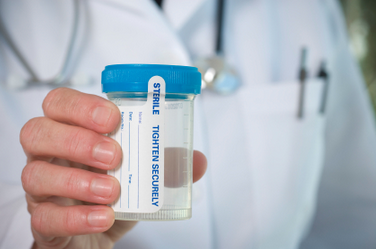Workplace drug testing is a growing trend. Over the past decade substance abuse has become a more widespread problem and this is affecting productivity in some companies. It also can become a health and safety issue. Drug testing is an effective way to deal with the problem.
Substance abuse is not limited to only illegal substances, but also includes alcohol and prescription drugs. Alcohol accounts for most workplace accidents, most unplanned sick leave and also a reduction in productivity. Accidents are actually one of the least likely problems associated with alcohol. The biggest problem is poor performance, absenteeism, low team morale, poor discipline and an adverse effect on customer relations.
In some parts of industry drug testing is now well established. In the health sector, the army, police force, aviation and the oil industry, drug testing is carried out as standard practice to ensure that staff remain free of all banned substances when working. In many professions it is also standard practice to carry out a drug test following an accident in the workplace. These tests are performed on all those who are present, not just those who caused the accident.
Types of drug test
There are two main types of drug tests that are used in office environments: urine tests and hair follicle tests. Urine tests can identify when drugs have been used in the last five to seven days. Hair follicle tests can detect drug usage over a period of around three months. An employee can disguise urine tests, if they are given advanced warning of a drug test. Hair follicle testing cannot be disguised but the process does take longer. Also, hair follicle tests do not identify recent drug abuse.
The challenge for large companies is to test all employees as quickly as possible without impacting on productivity. Random drug testing can only work effectively if it is completed before employees have an opportunity to flush out signs of drug usage.
Ethical testing
A company drug testing policy should really be for all employees, including managers and directors. When testing takes place it should either be a blanket test across the business or a random selection of staff. Random drug testing is the best way for a company to avoid being accused of discriminating against certain individuals.
In many professions a positive drug result should not automatically lead to dismissal. If an employee is found to be taking drugs their manager should offer assistance and counseling to the employee who is struggling with substance abuse. Often there are underlying issues which lead to substance abuse and a good employer should be able and willing to refer their staff for counseling.
This also makes economic sense as in most lines of work the cost of recruiting and training a new member of staff may well be more than the cost of help. Giving an employee help when they need it most can increase staff loyalty and morale.
Employee rights
Before start drug testing in the workplace it is important to understand the employees’ rights. A company cannot by law force a member of staff to take a drug test. Therefore, it is vital that if a drug testing policy is to be introduced it must form a part of the employee contract or company handbook.
If an employee refuses to participate in a drug test a manager can take disciplinary action, but only if the employee has already contractually agreed to provide test samples when asked.
It is also important to respect an employee’s rights to privacy, so a positive drug test should not be publicized within the business. All discussions with the member of staff and disciplinary action should be kept confidential whenever possible.
While there is no specific law governing the recruitment process, it is generally advisable to only test candidates who are offered a position. Rather than test all job candidates at the interview stage, a conditional job offer should be made and one of the conditions should be that the candidate is free from drugs. A drug test can be made at this stage, giving the candidate the opportunity to decline the offer rather than risk giving a positive sample.
Studies have shown that routine drug testing can be effective at reducing drug use within a company, and this often results in increased attendance and performance. Ensuring that all employees are not taking drugs also helps to keep the working environment safe for both workers and customers.
